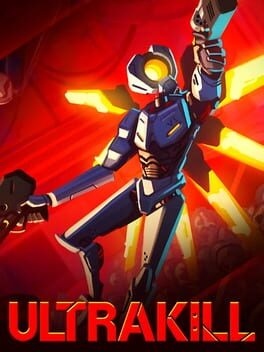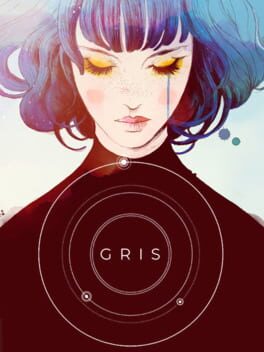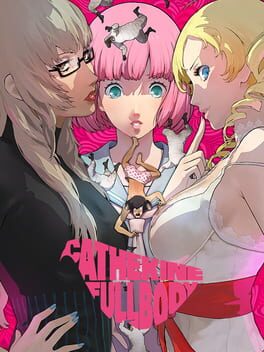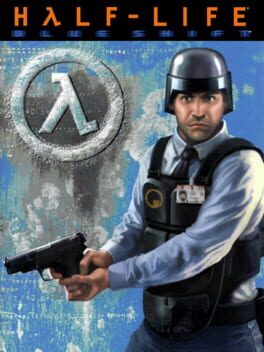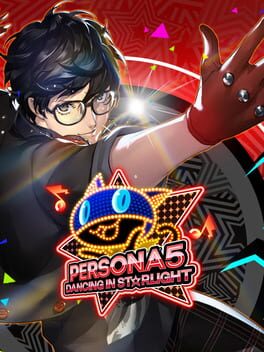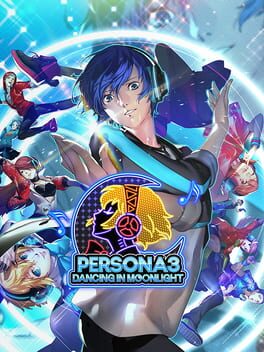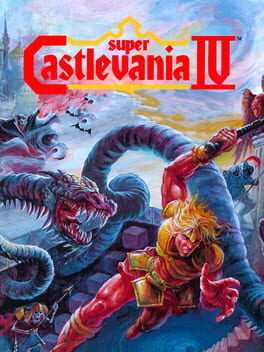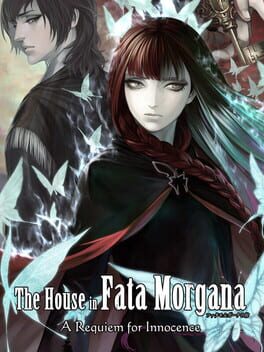NoahHerbert
2023
Wow the demo was good but after finishing the full game my expectations have been exceeded. Lies of P has succeeded tremendously in almost everything it set out to achieve. The setting of Krat inspired by the Belle Époque period lends itself beautifully to the style of gameplay found within this sub genre as during exploration and traversal, the ambience of the setting can really be appreciated. The visual design of the enemies is also noteworthy, particularly for the puppet type enemies and their animations.
Due to the nature of the fast and dynamic combat system, the developers were able to design complex and engaging movesets for bosses and elite type enemies which kept combat engaging throughout. I liked the addition of being able to recharge your healing resource through doing damage once exhausted as it allows players who are playing well the opportunity to push on further into a level or fell a boss instead of having to return to a stargazer just to replenish.
My only complaints with the game is it being too linear in nature and the colour palette being on the subdued side. Stunning debut title can't wait to see what the potential DLC has in store for us.
Due to the nature of the fast and dynamic combat system, the developers were able to design complex and engaging movesets for bosses and elite type enemies which kept combat engaging throughout. I liked the addition of being able to recharge your healing resource through doing damage once exhausted as it allows players who are playing well the opportunity to push on further into a level or fell a boss instead of having to return to a stargazer just to replenish.
My only complaints with the game is it being too linear in nature and the colour palette being on the subdued side. Stunning debut title can't wait to see what the potential DLC has in store for us.
In this review I will not be trying to dissect the story of a House in Fata Morgana due to its scope and complexity however I still would like air my thoughts about it.
The House in Fata Morgana is a beautifully tragic story about love, hatred, regret, and forgiveness. The non-linear structure in which this story is told is a notable point of genius, as your perception of certain events or characters drastically shift in unexpected ways as the story develops. A lot of stories often fall into the trap of making characters too faultless or likeable and I think The House in Fata Morgana straddles the line perfectly, by writing characters that have depth and seem genuine. Furthermore, I like how during the story, we often swap perspectives, which again alters our perception of these characters, allowing us to come to empathise with each and every one of them no matter how irredeemable they originally appeared.
The ‘villain’ in The House in Fata Morgana is as equally unique as its plot, both of which I unfortunately can’t discuss without ruining the story. I can however talk about the music! The soundtrack here is extremely effective in creating the atmosphere of this mansion when our view of its interior is so limited. This is due to great compositions, a suitably gothic choice of instrumentation and the amazingly spectral quality of the vocals in these tracks. Furthermore, the way the soundtrack is utilised to better convey the tone during key scenes in absence of voice acting is genius. This is especially evident in its most haunting and memorable moments.
In conclusion, The House in Fata Morgana is a narrative triumph and culminates in a truly beautiful and unforgettable way, and I believe it has left a lasting impression on me as it for has for many others.
The House in Fata Morgana is a beautifully tragic story about love, hatred, regret, and forgiveness. The non-linear structure in which this story is told is a notable point of genius, as your perception of certain events or characters drastically shift in unexpected ways as the story develops. A lot of stories often fall into the trap of making characters too faultless or likeable and I think The House in Fata Morgana straddles the line perfectly, by writing characters that have depth and seem genuine. Furthermore, I like how during the story, we often swap perspectives, which again alters our perception of these characters, allowing us to come to empathise with each and every one of them no matter how irredeemable they originally appeared.
The ‘villain’ in The House in Fata Morgana is as equally unique as its plot, both of which I unfortunately can’t discuss without ruining the story. I can however talk about the music! The soundtrack here is extremely effective in creating the atmosphere of this mansion when our view of its interior is so limited. This is due to great compositions, a suitably gothic choice of instrumentation and the amazingly spectral quality of the vocals in these tracks. Furthermore, the way the soundtrack is utilised to better convey the tone during key scenes in absence of voice acting is genius. This is especially evident in its most haunting and memorable moments.
In conclusion, The House in Fata Morgana is a narrative triumph and culminates in a truly beautiful and unforgettable way, and I believe it has left a lasting impression on me as it for has for many others.
2020
In recent years I have been enjoying single-player FPS games less and less, I thought that maybe they just weren't for me anymore. I was glad to be proven wrong when playing Ultrakill. The gameplay is nuanced, with a truly impressive amount of player expression available. This is commonly missing in most shooters which explains my growing fatigue.
Stellar and diverse levels complement this amazing gameplay, although in classic boomer shooter fashion they are disconnected and do not flow into one another. Boss fights were an unexpected highlight especially those against V2 and Gabriel where your mastery of effective weapon switching, and evasion truly gets put to the test. These fights are relentless in the best possible way as the boss AI is reminiscent of how you yourself play, so the satisfaction upon besting these two is immense. The integration of checkpoints was a good choice also as they prevent frustration on higher difficulties whilst not being too egregious.
I’m looking forward to when I get to blitz my way through the newly released Layer 7. As after the holidays are over, I go back and reunite with my primary PC setup, namely my nice peripherals. So yes, I’ve been holding off so that I can experience it the right way :)
Stellar and diverse levels complement this amazing gameplay, although in classic boomer shooter fashion they are disconnected and do not flow into one another. Boss fights were an unexpected highlight especially those against V2 and Gabriel where your mastery of effective weapon switching, and evasion truly gets put to the test. These fights are relentless in the best possible way as the boss AI is reminiscent of how you yourself play, so the satisfaction upon besting these two is immense. The integration of checkpoints was a good choice also as they prevent frustration on higher difficulties whilst not being too egregious.
I’m looking forward to when I get to blitz my way through the newly released Layer 7. As after the holidays are over, I go back and reunite with my primary PC setup, namely my nice peripherals. So yes, I’ve been holding off so that I can experience it the right way :)
Symphony of the Night is masterful. Every aspect of the game is executed impeccably and unlike many games, it is concise and concentrated. To begin, every room oozes detail, each pixel feels like it has been meticulously placed, animations are fluid, think Alucard’s mesmerising walk cycle, backgrounds move and shift in a realistic way, the melding of 3D with 2D is utilised to great effect, allowing for effect, detail and subsequently depth that would be impossible to convey in just a pixel grid. Each area within Dracula’s castle has its own distinct identity, this is thanks to the outstanding and varied art direction throughout as well as the accompanying compositions which each excellently embody and evoke the mood of its corresponding location, defining them just as much as their visuals. Progression through the castle is smooth and mostly unceasing due to the refined map layout, which cannot be said for many Metroidvanias, backtracking is also minimal because of the tasteful placement of warp rooms.
I played this game completely blind and unspoiled so when I got to the Richter fight, and I rolled credits for the first time I understandably felt slightly underwhelmed by this conclusion. Luckily the game just compelled me to keep playing, so I went about filling in what I thought were the final tiles of the map, and in the process, I managed to obtain the holy glasses from Maria and initiate the Inverted Castle without outside interference or anticipation of what was to come, which was immensely satisfying. The spectacle of the Inverted Castle is still great, navigating the castle in reverse provides an interesting challenge as trying to rely on your memory can be a double-edged sword. The introduction of new, tougher enemies and often a higher density of them in each room keeps things from stagnating. I love the boss rush quality that crops up here, escalating to the final fight with Dracula which while a bit of a slog, delivers in cheesy, iconic dialogue and most importantly finality.
I played this game completely blind and unspoiled so when I got to the Richter fight, and I rolled credits for the first time I understandably felt slightly underwhelmed by this conclusion. Luckily the game just compelled me to keep playing, so I went about filling in what I thought were the final tiles of the map, and in the process, I managed to obtain the holy glasses from Maria and initiate the Inverted Castle without outside interference or anticipation of what was to come, which was immensely satisfying. The spectacle of the Inverted Castle is still great, navigating the castle in reverse provides an interesting challenge as trying to rely on your memory can be a double-edged sword. The introduction of new, tougher enemies and often a higher density of them in each room keeps things from stagnating. I love the boss rush quality that crops up here, escalating to the final fight with Dracula which while a bit of a slog, delivers in cheesy, iconic dialogue and most importantly finality.
1994
Such an essential classic. I love the style of fantasy world present in FFVI, the quality of the towns were especially a highlight, NPCs actually say interesting and varied things that provide insight into the story or where to go next; benefiting significantly the believability of this world and consequently the immersion I felt.
The story was also very compelling specifically in it's human element, the backstories for each character being particularily memorable. The way in which party members are introduced across the duration of the game kept me invested as each character has a skill unqiue to them, these were immediately fun to incorporate into battles and helped keep combat from getting too stale. The music is some of the best in any game.
Finally the conclusive fight against Kefka is unforgettable in it's scope and visual design, one of the primary reasons I like JRPGs is because of the often amazing spectacle of their boss fights and FFVI delivers on that.
The story was also very compelling specifically in it's human element, the backstories for each character being particularily memorable. The way in which party members are introduced across the duration of the game kept me invested as each character has a skill unqiue to them, these were immediately fun to incorporate into battles and helped keep combat from getting too stale. The music is some of the best in any game.
Finally the conclusive fight against Kefka is unforgettable in it's scope and visual design, one of the primary reasons I like JRPGs is because of the often amazing spectacle of their boss fights and FFVI delivers on that.
2018
An exquisite puzzle platformer with truly special visuals. I love the way the game is structured into four distinct stages each with a corresponding colour and where a new pairing ability is introduced. The art reminds me a lot of the film Belladonnna of Sadness in the way it mimics water colour paints, and it is just stunning. Compared to Journey, another short adventure style game it is a lot less walking sim and the puzzle's struck the perfect balance between complexity and simplicity, therefore the momentum of the game is never lost. The score was suitably poignant for what the game is trying to convey and really florishes, beautifully at moments for great effect, think back to the beginning of the game when Gris is falling. Audio design beyond that is equally impressive, everything in this game sounds so uniquely organic. In conclusion Gris is breathtaking and I can't wait to see this studio tackle a new game with their outstanding art and audio design.
2019
It was refreshing to play Catherine, a game in Atlus’s singular style that wasn't an 80+ hour long behemoth. Easily one of the strangest games I’ve played in a good way, the integration of gameplay and story is seamless but also so unconventional. The story was always thoroughly entertaining, with well written dialogue, which can be hilarious at times, for example what some of the sheep in the nightmare have to say. The voice actors in this game absolutely kill it, particularly Vincent’s voice actor who really captures the characters indecisiveness and anxiety, while still making him sympathetic, earnest and ultimately believable.
The anime cutscenes are all excellent and some have a cool motion effect applied to them, this is present in the scene where Catherine and Katherine are arguing. Character models are surprisingly superior to those in Persona 5 Royal even though they both launched in the same year. The gameplay is commendable in its uniqueness however it was a struggle to get adjusted to initially, and can become quite repetitive at times, thankfully the climbing sequences are broken up frequently with cutscenes and time spent at the Stray Sheep. I love how sheep from the nightmare crop up in the stray sheep from time to time. New blocks are regularly introduced to help prevent monotony from setting in, this does a serviceable job in progressing the gameplay, forcing you to think more consciously about how you tackle the stages.
It would be fascinating to see Atlus do more games in this vein as it shows that they have a lot to offer beyond the JRPGs they are so practiced at. Sadly, it seems very unlikely but one can only hope.
The anime cutscenes are all excellent and some have a cool motion effect applied to them, this is present in the scene where Catherine and Katherine are arguing. Character models are surprisingly superior to those in Persona 5 Royal even though they both launched in the same year. The gameplay is commendable in its uniqueness however it was a struggle to get adjusted to initially, and can become quite repetitive at times, thankfully the climbing sequences are broken up frequently with cutscenes and time spent at the Stray Sheep. I love how sheep from the nightmare crop up in the stray sheep from time to time. New blocks are regularly introduced to help prevent monotony from setting in, this does a serviceable job in progressing the gameplay, forcing you to think more consciously about how you tackle the stages.
It would be fascinating to see Atlus do more games in this vein as it shows that they have a lot to offer beyond the JRPGs they are so practiced at. Sadly, it seems very unlikely but one can only hope.
A short but passable jaunt through the Black Mesa Research Facility once again, this time from Barny's perspective. Unfortunately Blue Shift doesn't really do anything to set itself apart from both the original game and it's other excellent expansion, Opposing Force. The levels here are all quite homogenous and flat, Barny also has no weapons that are unique to him, making this expansion feel like a poor quality map pack to keep fans abated whilst Half Life 2 was still being developed. However the charm of the GoldSrc engine was enough for me to still enjoy this.
Basically just an inferior version of the Persona 4 Dancing. Nothing burger social events, forgettable remixes. Having to play through the same songs repeatedly to unlock the ‘story’ content is a bore, why not make these all unlock by the time you have cleared each song just once? Also the music in Persona 5 while phenomenal is way worse off in a dancing game than Persona 4’s. I may just be burnt out on the gameplay after the prior entry but I couldn’t stomach any more. For now I’m shelving this which is rather rare for me but I guess this just speaks for how vapid this game is.
I adore Disco Elysium. It is truly a one-of-a-kind experience, and sadly after almost 5 years have passed since its initial release, it seems even more mythic and unrepeatable now. The creatives behind it delivered a narrative experience that is frankly unparalleled with anything I’ve ever played. From the mesmerizingly melancholic world of Elysium to its riveting plot and conflict informed by the detailed politics and history of Revachol. This being conveyed naturally through tidbits you learn from its inhabitants and the environment as you explore it. Every character you meet along the way feels as though they really live and breathe, existing separately from the player’s interaction, they communicate their own views and temperaments in a way that is astonishingly lifelike and individual. This is bolstered by the diverse array of voice talent, each of which sound exactly how they read, perfectly understanding the nuance and tone of the script. A particular highlight for me was the presence of Kim Kitsuragi, he feels like a real companion throughout, having him by you side at all times facilitates intricacy in your interaction with the environment and other characters which otherwise wouldn’t be possible. The way he voices his interpretation of the investigation as it progresses, interjecting in interviews, pulling you aside to talk over things in private, scolding you when you act up; it lends so much legitimacy to the role of the detective you are playing as well as the experience overall. To sum it up Disco Elysium’s writing is vivid, wry, authentic, and truly singular.
The genius of Disco Elysium’s design lies in its decision to abandon conventional gameplay, so that it can tell a story completely unconstrained, while importantly maintaining a traversable, interactable, and compelling world to explore and immerse yourself in. I’m really hopeful we will see future games adopt this approach as it will allow for new and more sophisticated stories to be told, furthering games as a narrative medium. The gameplay in Disco Elysium is essentially there to reinforce the story, there is no twitchy real time combat to keep you hooked, purely exploration, interfacing with the environment and others and roleplaying in the form of decision making, equipment and stat distribution. For example, the commitment to make certain choices partly up to chance in the form of white and red checks, is exciting, adding tension and gravity to key moments. This in combination with the skill system determining Harry’s abilities and thoughts makes each playthrough feel unique and I’m eager to see what changes on a replay using a different archetype. Crucially the gameplay makes you feel like detective Harrier Du Bois, its unglamorous but immersive and cohesive with the story and because of that its pacing is excellent throughout.
The genius of Disco Elysium’s design lies in its decision to abandon conventional gameplay, so that it can tell a story completely unconstrained, while importantly maintaining a traversable, interactable, and compelling world to explore and immerse yourself in. I’m really hopeful we will see future games adopt this approach as it will allow for new and more sophisticated stories to be told, furthering games as a narrative medium. The gameplay in Disco Elysium is essentially there to reinforce the story, there is no twitchy real time combat to keep you hooked, purely exploration, interfacing with the environment and others and roleplaying in the form of decision making, equipment and stat distribution. For example, the commitment to make certain choices partly up to chance in the form of white and red checks, is exciting, adding tension and gravity to key moments. This in combination with the skill system determining Harry’s abilities and thoughts makes each playthrough feel unique and I’m eager to see what changes on a replay using a different archetype. Crucially the gameplay makes you feel like detective Harrier Du Bois, its unglamorous but immersive and cohesive with the story and because of that its pacing is excellent throughout.
I actually really enjoyed my time with this one. I just needed something immediate and easy to play in the evening, and something Persona felt comforting. The rhythm gameplay is intuitive and satisfying, executing long combos to the best tracks from Persona 3 is exactly as it sounds, fun. It also helps that Dancing in Moonlight has great remixes that sound wholly different to the originals, whilst also sounding more in line with typical dance music. The character customisation is another highlight, boasting great outfits in particular; however, it is hampered for the duration of the game as Yukari’s and Junpei’s social links are reliant on you swapping in new outfits and accessories every dance to rank up, forcing you to put together awful, incoherent looking outfits for the characters, instead of letting you play around with stylish combinations. The social links are still underbaked and largely uninteresting, however the scenes with Elizabeth in were surprisingly amusing.
In conclusion, Persona 3 Dancing in Moonlight is a great way to appreciate Persona 3’s music whilst being further entertained by sharp rhythm gameplay. Overstimulation at its finest.
In conclusion, Persona 3 Dancing in Moonlight is a great way to appreciate Persona 3’s music whilst being further entertained by sharp rhythm gameplay. Overstimulation at its finest.
1994
Took me far too long to get around to this classic. The upgrades for Samus are still impressive and unique, consequently the environmental puzzle solving is super engaging, which is something a lot of modern Metroidvanias sorely lack. Some of the ways forward can be a bit obtuse but the satisfaction of finding the solution makes it worthwhile. I didn’t expect to enjoy some of the boss fights as much as I did, whilst what they expect from the player is quite simple, to run, gun, duck and jump, each did a good job differentiating themselves in the way they move about the arena, their movesets, attack patterns and of course in their distinct, beautiful pixel art. I do wish more platforming was incorporated into these battles however that may have over complicated things which I get. All the areas in the game are outstanding, with stellar level design throughout, the shortcuts connecting each area are also well thought out, meaning backtracking never became arduous.
In conclusion it is incredible to think that Super Metroid was released almost 30 years ago, I can’t imagine how futuristic it must have felt back then. Its depth is still astonishing and honestly it puts most modern Metroidvanias to shame.
In conclusion it is incredible to think that Super Metroid was released almost 30 years ago, I can’t imagine how futuristic it must have felt back then. Its depth is still astonishing and honestly it puts most modern Metroidvanias to shame.
1991
This is the first Classicvania game I’ve played, and it has won me over. Super Castlevania IV is frenetic fun, and I found myself greatly appreciating its simplicity. The gameplay is very straightforward, you must progress through linear stages, using your whip and a sub weapon to defeat enemies that obstruct you, whilst managing your health and lives so that you have enough to vanquish each concluding boss. The draw of it is learning from each mistake or death, then adjusting and optimising your approach accordingly, so that you can get a clean clear of each stage.
Initially I felt a great rush completing a stage, as the limited lives system urges you to lock in and play precisely, however later stages become bloated endurance tests, with an increase in awkward enemy positioning, and atrocious platforming, where making a mistake often results in an instant death and reset. Thankfully though this can be mitigated by the use of save states. These stages also exacerbate the issues with the boss battles, as you frequently reach these with less resources to expend. Unfortunately, the majority of boss battles in Super Castlevania IV are frustrating because the arenas are too small, bosses recurrently bump into you and many attacks feel unavoidable, as a result they are more so a test of if you can initiate the fight with full health and lots of hearts so that you are able to out DPS them, rather than that of positioning, reflexes and recognising patterns. Regardless there are some exceptions, such as Dracula which is a tremendous but difficult fight.
Overall, I really enjoyed my first foray into classic Castlevania, however I feel like because of my use of save states in the latter half of the game, I circumvented a lot of frustration and tedium. I also derived additional enjoyment from playing this handheld on my RG35XX, a vertical Anbernic emulation device modelled after the original Gameboy, which I can’t shill for enough.
Initially I felt a great rush completing a stage, as the limited lives system urges you to lock in and play precisely, however later stages become bloated endurance tests, with an increase in awkward enemy positioning, and atrocious platforming, where making a mistake often results in an instant death and reset. Thankfully though this can be mitigated by the use of save states. These stages also exacerbate the issues with the boss battles, as you frequently reach these with less resources to expend. Unfortunately, the majority of boss battles in Super Castlevania IV are frustrating because the arenas are too small, bosses recurrently bump into you and many attacks feel unavoidable, as a result they are more so a test of if you can initiate the fight with full health and lots of hearts so that you are able to out DPS them, rather than that of positioning, reflexes and recognising patterns. Regardless there are some exceptions, such as Dracula which is a tremendous but difficult fight.
Overall, I really enjoyed my first foray into classic Castlevania, however I feel like because of my use of save states in the latter half of the game, I circumvented a lot of frustration and tedium. I also derived additional enjoyment from playing this handheld on my RG35XX, a vertical Anbernic emulation device modelled after the original Gameboy, which I can’t shill for enough.
This review contains spoilers
I found the pacing of the story to be quite slow even in comparison to the original, however that may be because I played part I of the main scenario across many days, missing days even. On the contrary I finished part II in just one day without much interruption. The story is basically an expansion on Morgana’s backstory which we see as a flashback in Door VIII told with very minimal visuals. This time around the story is fleshed out further, with dialog and character sprites, which are drawn anew here and look much improved. It is told in a more intimate way, largely from Jacopo’s point of view, so we get to see some new scenes in part II regarding his journey into Lordship and consequent moral decline. The game does just about enough to convince you that it is possible for Jacopo to undergo such a severe change in character across the duration of the game. It was fascinating though, to see this transformation, to see Jacopo bound by the strains of power and consequently undone by it. Odilon was endearing, his relationship with Jacopo felt authentic and fatherly, subsequently his death was the perfect device to justify Jacopo’s future bitterness and depravity. Although this felt justifiable, what didn’t was the drastic dissimilarity between Jacopo’s internal monologue and subsequent actions regarding Morgana in the latter half of part II, even in his current mindset this felt unbelievable, and I don’t like how he acts like his time spent at the brothel was eons ago, anyway it felt like a major plot contrivance to me. Experiencing the ending first hand was brutal but anyone playing this already knew what was coming.
Part I does see some significant changes too, such as the introduction of three new characters: Gratien, Ceren and Lord Barnier. Their presence in the narrative does help keep things from becoming a complete bore as the trajectory of the story remains unchanged. I particularly like the characterisation of Lord Barnier, he is utterly insane and quite the memorable villain. I also really enjoyed seeing Morgana and Jacopo’s relationship blossom here, their back and forth was always engaging, and their growth felt organic. The standout scenes between them being when he first treats Morgana with the ointment and when he shelters her after she runs away from the brothel. Unfortunately, the first part is plagued with a lot of drivel dialogue in my opinion, which does drag it down for me.
The soundtrack whilst having some great additions, such as He Love You, doesn’t possess the same variety as the original game, with a lot less vocally orientated tracks which were usually the standout in the main entry. That said, the new piano tracks, which are the most prominently used are excellent, namely Singing the Glow of Sunrise, even if they just aren’t as distinctive as songs like Cicio in the previous entry. However, I do recognise the narrative and tonal reasons behind the inclusion of more sombre paired backed piano tracks in favour of the more dramatic, spectral and gothic tracks from the original game. On another note, I was baffled when certain other tracks played, as these start off sounding incredibly like royalty-free music before progressing into something different further in. I’m not sure if I’m just going crazy but I’m convinced they used melodies from some well-known royalty free music to build off whilst keeping these in at the beginning of the final versions, which is quite the bizarre decision if that is the case, doesn’t exactly do wonders for immersion but maybe the composer(s) thought it was funny I don’t know.
In conclusion I think Requiem for Innocence is worth playing if are a die-hard fan of the main game, however it is not at all essential. It doesn’t really do much to further the story and is missing the element of mystery and non-linearity in its narrative that made The House in Fata Morgana so engaging and original.
Part I does see some significant changes too, such as the introduction of three new characters: Gratien, Ceren and Lord Barnier. Their presence in the narrative does help keep things from becoming a complete bore as the trajectory of the story remains unchanged. I particularly like the characterisation of Lord Barnier, he is utterly insane and quite the memorable villain. I also really enjoyed seeing Morgana and Jacopo’s relationship blossom here, their back and forth was always engaging, and their growth felt organic. The standout scenes between them being when he first treats Morgana with the ointment and when he shelters her after she runs away from the brothel. Unfortunately, the first part is plagued with a lot of drivel dialogue in my opinion, which does drag it down for me.
The soundtrack whilst having some great additions, such as He Love You, doesn’t possess the same variety as the original game, with a lot less vocally orientated tracks which were usually the standout in the main entry. That said, the new piano tracks, which are the most prominently used are excellent, namely Singing the Glow of Sunrise, even if they just aren’t as distinctive as songs like Cicio in the previous entry. However, I do recognise the narrative and tonal reasons behind the inclusion of more sombre paired backed piano tracks in favour of the more dramatic, spectral and gothic tracks from the original game. On another note, I was baffled when certain other tracks played, as these start off sounding incredibly like royalty-free music before progressing into something different further in. I’m not sure if I’m just going crazy but I’m convinced they used melodies from some well-known royalty free music to build off whilst keeping these in at the beginning of the final versions, which is quite the bizarre decision if that is the case, doesn’t exactly do wonders for immersion but maybe the composer(s) thought it was funny I don’t know.
In conclusion I think Requiem for Innocence is worth playing if are a die-hard fan of the main game, however it is not at all essential. It doesn’t really do much to further the story and is missing the element of mystery and non-linearity in its narrative that made The House in Fata Morgana so engaging and original.
2012
Journey is beautiful and soothing. The puzzles are simple but fun to solve, consequently the flow of the game is never halted which I really appreciate. The art direction is absolutely breathtaking, from the expansive vistas to the way the environment and its other inhabitants respond to your interaction. The traversal elements in Journey helps keep the player engaged while also highlighting or showcasing its amazing visuals from different angles and elevations, sliding down sand dunes should absolutely be in more games. Finally I just love the concept of seeing your destination from afar, and being able to measure your progress from your proximity to it. I look forward to playing another title by this developer when my mood compels me to, i.e when I'm burnt out from long RPGs and am looking for something short to just wash over me :)


